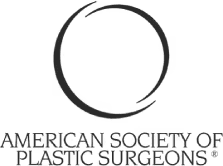FACELIFT
The Dos and Don’ts of Facelift Surgery Recovery

While the facelift surgery procedure can be highly effective in achieving the desired results, it is essential to follow the proper recovery guidelines to ensure the best possible outcome. In this blog post, we will discuss the dos and don’ts of facelift surgery recovery, with a focus on the specific guidelines for patients in Dubai.
Dos:
- Follow your surgeon’s instructions
Following your surgeon’s instructions is critical to a successful recovery after facelift surgery. Your surgeon will provide you with specific guidelines on post-operative care, including how to care for your incisions, how to manage pain, and how to avoid complications. It is essential to follow these instructions closely and ask any questions you may have.
- Get plenty of rest
Rest is crucial for a speedy recovery after facelift surgery. It is recommended that you take at least one week off from work and other activities to rest and recover. Avoid any strenuous activities, such as exercise or heavy lifting, for at least two weeks after surgery.
- Keep your head elevated
Keeping your head elevated can help reduce swelling and bruising after facelift surgery. It is recommended that you sleep with your head elevated for the first two weeks after surgery. You can use extra pillows or a wedge pillow to elevate your head while you sleep.
- Stay hydrated
Staying hydrated is important for proper healing after facelift surgery. Be sure to drink plenty of water and other fluids to prevent dehydration and promote healing.
- Eat a healthy diet
Eating a healthy diet can help promote healing after facelift surgery. Be sure to eat plenty of fruits, vegetables, lean protein, and whole grains. Avoid processed foods, sugary snacks, and alcohol, which can slow down the healing process.
Don’ts:
- Smoke
Smoking can significantly impair the healing process after facelift surgery. Nicotine constricts blood vessels, reducing blood flow to the surgical site, which can lead to complications such as infection, delayed healing, and scarring. It is recommended that you avoid smoking for at least four weeks before and after surgery.
- Drink alcohol
Alcohol can also impair the healing process after facelift surgery. It can interfere with the body’s natural healing process and increase the risk of complications such as bleeding and infection. It is recommended that you avoid alcohol for at least two weeks before and after surgery.
- Sun exposure
Sun exposure can damage the skin and slow down the healing process after facelift surgery. It is recommended that you avoid sun exposure for at least six weeks after surgery. When you do go outside, be sure to wear a hat and use sunscreen with an SPF of at least 30.
- Engage in strenuous activities
Strenuous activities, such as exercise or heavy lifting, can increase the risk of complications after facelift surgery. It is recommended that you avoid any strenuous activities for at least two weeks after surgery. Your surgeon will provide you with specific guidelines on when it is safe to resume these activities.
- Ignore signs of complications
It is essential to monitor your recovery closely and report any signs of complications to your surgeon immediately. Signs of complications may include excessive pain, bleeding, swelling, or fever. If you notice any of these symptoms, contact your surgeon right away.
In conclusion, following the proper recovery guidelines is critical to a successful outcome after facelift surgery. Be sure to follow your surgeon’s instructions, get plenty of rest, keep your head elevated, stay hydrated, and eat a healthy diet. Avoid smoking, alcohol, sun exposure, and strenuous activities, and report any signs of complications to your surgeon








